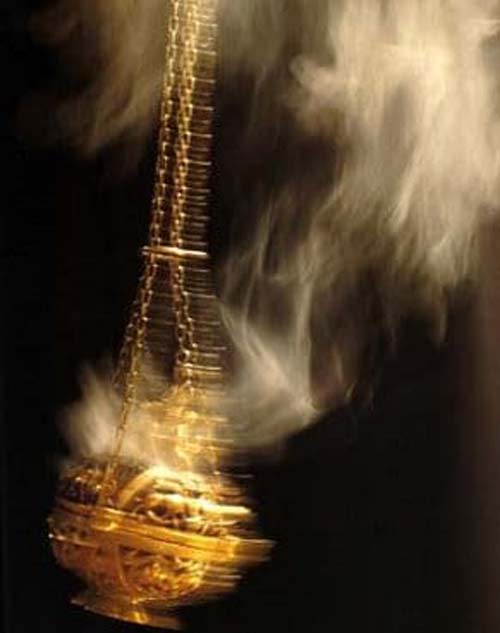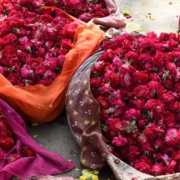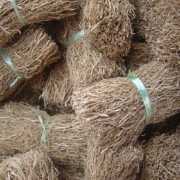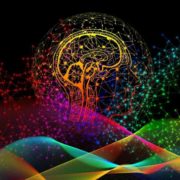Spirituality of the sense of smell

Love for perfumes and spirituality go together, at least in the tradition of Islam.
Very much unlike the idea of Serge Lutens for whom perfume is an expression of decadence and sensuality, the prophetic traditions of the three monotheistic religions, in their ritual as well as in their mystics, have given us many clues about the direct relation that exists between the spiritual reality of men and their olfactory capacity.
Starting with Hebrew mysticism, because it springs from the prophet Abraham who is not only the spiritual but also the biological forefather of Moses, Jesus, and Mohammad, the sense of smell is described as the only one giving pleasure to the soul, while all other senses give pleasure to the body.
The following traditions explain my point, which is that the best of mankind, the founders of faiths, had a sense of smell that allowed them to sense what other people could not.
The following examples come directly from the Muslim tradition, particularly from the Quran.
Jesus used to upset his people when he was a child, describing to them what they had eaten in their houses, and the evident explanation is that he could smell it, as this often happens to me and you, when people have eaten fried foods, for example.
Nevertheless, this ability of Jesus was so stunning to people because he would tell them everything they had eaten, including the foods that none could have smelled. This was quite disturbing for the co-nationals of Jesus because the rules regulating the foods are extremely strict in Hebraism and many were not following them as they should. Jesus was not just telling them what they had eaten but what forbidden foods they had eaten.
Solomon had been taught the language of all living creatures. Once he passed with his army by a very big ant community. Feeling the footsteps of his legions, the ants became alarmed and called each other “get back under earth otherwise Solomon’s army will smash you under their feet”. Then Solomon, hearing this, laughed (Quran).
How could Solomon hear their voices? Because he could smell their language. Insects communicate essentially through a chemical language, they produce pheromones, and among them are alarm pheromones. With this device, a tiny insect of 2 mm can send his message to others over long distances. This is what the antennas of insects are: noses for chemical (aromatic) messages. Solomon’s nose was so sensitive that he could smell these pheromones with which insects communicate, and knew their meaning. He could not speak to the ants but knew their language.
Jacob had become blind from the disappearance of his beloved son Joseph. After many years the whole bunch of his 12 brothers were forced by famine to get out of the desert to find wheat in Egypt.
Joseph had become the vizier of Pharaoh and was his minister of agriculture. They did not recognize him but he did recognize them. At last, he revealed himself to them on their third travel to Egypt and said to them: go back to our father and throw this shirt of mine onto his face. He will recover his sight. So when the caravan approached Jacob’s tent he said: “I can smell the smell of Joseph”. In fact, the sense of smell of blind people becomes particularly acute, but not to this point. Jacob was a prophet and like Jesus or Solomon, he could smell what other people cannot smell.
His sons said, “this is your old folly about Joseph that overtakes you again”. But there came the sons who had been to Joseph, and when they threw the shirt onto his face his blindness was cured. This is how the nose can cure other organs of our body. It is a great sorrow that had made him blind. The nose can bring powerful emotions and the smell of Joseph procured him joy so great that it cured the blindness caused by the sorrow of his loss.
The prophet Muhammad who had been orphaned at the age of six, whose only children were daughters, whose first convert was a woman, said that his most beloved person was his wife and who replied once “the best among you is the one kinder to his family”, said: “Three things of this world were made dear to my heart: prayer, perfume, and feminine gender”.
The Muslims were thus enjoined to use perfume for the ritual Friday prayer, this is why the art of perfumes, born in India was developed by the Arabs in the same way as they assimilated and developed the science of medicine from the Greeks.
But as we know well with aromatherapy, between perfume and medicine there is not really a frontier and the forgotten figure of the perfumer-healer is rising again from the art of natural perfumery. The Natural perfumer of today does not have the spiritual dimension that often surrounded the antique perfumer, but he has a psycho-therapeutic role of healer of mind with his perfumes because we can say that a scent that makes you feel good when you are depressed has actually cured you.
This is where bespoke perfumery is where he can fully accomplish his spiritual mission.






















Leave a Reply
Want to join the discussion?Feel free to contribute!